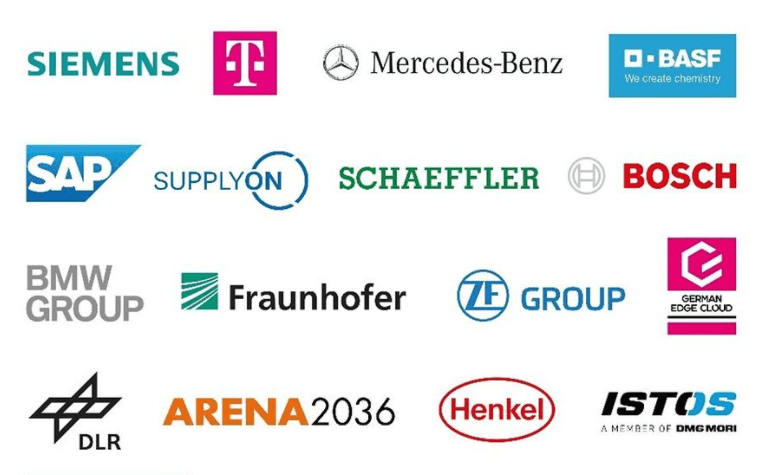German carrier Deutsche Telekom has issued updates on key projects around industry-wide data sharing in the automotive supply chain and smart cities sectors in Europe. It has also announced, via subsidiary T-Systems, a “high three-digit million” deal with DHL Deutsche Post for public, private, and hybrid cloud services.
Deutsche Telekom said membership of the new Catena-X Automotive Network (Catena-X) project, announced late last year to facilitate secure data sharing across the German automotive industry, has been expanded. New joiners include Mercedes-Benz, BASF, Henkel, Schaeffler, the German Aerospace Center (DLR), the Fraunhofer Society, and the ARENA2036 research factory, among others.
As well as Deutsche Telekom, the likes of Bosch, BMW, SAP, and Siemens are already engaged in the project, which aims to identify production bottlenecks or parts shortages, and avoid the kinds of production outages experienced during Covid-19 lockdowns. Car parts supplier Friedrichshafen is another to be involved.

But the group, which is building an industry-wide data sharing platform on the European Gaia-X cloud infrastructure, made clear it wants small and medium sized firms to get involved, as well; a number have joined the group with the latest intake. It said their participation is of “central importance for the network’s success”.
A statement said: “That is why Catena-X has been conceived from the outset as an open network with solutions ready for SMEs, where these companies will be able to participate quickly and with little IT infrastructure investment.” The European automotive industry’s existing structures – including for quality management, logistics, maintenance, supply chain management and sustainability – are to be integrated into the network and further optimised, it said.
The group said: “Continuously connected data chains… make it possible to create digital twins of automobiles, on the basis of which innovative business processes and service offerings can be developed… With the International Data Spaces (IDS) standard for data sovereignty, which also lays the foundation for… GAIA-X, the companies involved have already agreed on essential infrastructure foundations for project implementation.”
Separately, Deutsche Telekom has also reported on its engagement with the Fraunhofer’s Data Competence Center for Cities and Regions (DKSR) project, part of the institute’s City of the Future / Urban Data Community (Morgenstadt) initiative, an open data sharing model between cities in Germany (Berlin, Chemnitz) and further afield in Europe (Prague, Lisbon, Tbilisi).
The steering group, which includes Deutsche Telekom, has spun the project out as an independent company, as of late February, to help municipalities ‘retrieve and share urban data in a structured and secure manner’, or words to that effect. The new DKSR business will provide an open-source platform that “guarantees data sovereignty, while ensuring further development and exchange on best practices in the Morgenstadt community”, a statement said.
Wilhelm Bauer, executive director at Fraunhofer Institute for Industrial Engineering, said: “At Fraunhofer, we work on ways to use knowledge from data for municipalities, the citizens, and business. And often, as is the case here, start-ups with established companies are a way of successfully transferring this knowledge.”
His colleague, Goodarz Mahbobi, described as “originator of the joint initiative”, added: “Digital transformation and the associated data sovereignty in municipalities is a challenge that is so complex that it cannot be solved by one company alone. Rather, it requires a symbiosis of various specialist competencies – these are bundled in DKSR.”
Michael Frank, responsible for smart city at Deutsche Telekom, commented: “We are convinced that shaping the shared space of the city can also only be achieved together and in dialogue. In addition to networks and communities for dialogue, open urban data platforms as a basic municipal infrastructure will make an important contribution to success.”
Meanwhile, Deutsche Telekom subsidiary T-Systems has said it has extended a deal for IT and cloud services with Deutsche Post DHL. The “high three-digit million” euro framework agreement with Deutsche Post DHL covers supervision of “large parts” of the logistics firm’s information and communications technology (ICT) estate. This covers voice and data networks for cellular and IoT, as well as a hand in its wider digital transformation strategy. It will work with Deutsche Post DHL to “develop, maintain, and operate” mission-critical applications.
For ‘mission critical’ read parcel stations, handheld delivery apps, and shipment tracking. It is unclear whether Deutsche Post DHL’s tracking arrangement with Sigfox, for 250,000 roll containers in parcel depots and sorting offices in Germany comes under the remit of the framework, as well. The deal “guarantees continuity” and will see the “bulk of [DHL’s] IT” move to the cloud by 2024. T-Systems said it will offer a combination of public cloud with Microsoft, its own private cloud, and a hybrid tie-up of the two.
The agreement runs to the end of 2027. Adel Al-Saleh, chief executive at T-Systems, commented: “Our partnerships especially with providers like Microsoft are an important factor. We can offer the right cloud solution for each customer – from the public cloud, our own private cloud, or the hybrid cloud.”

